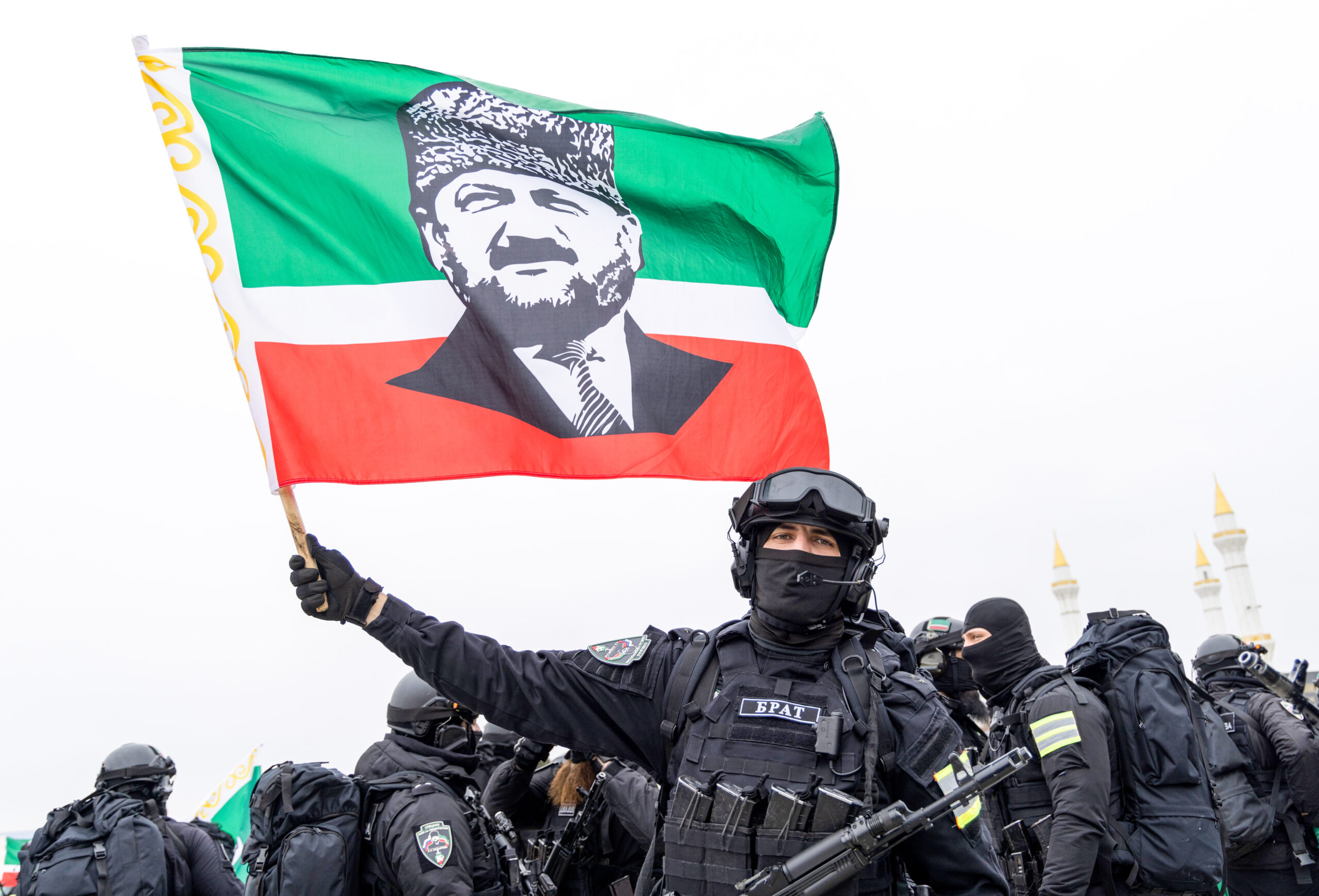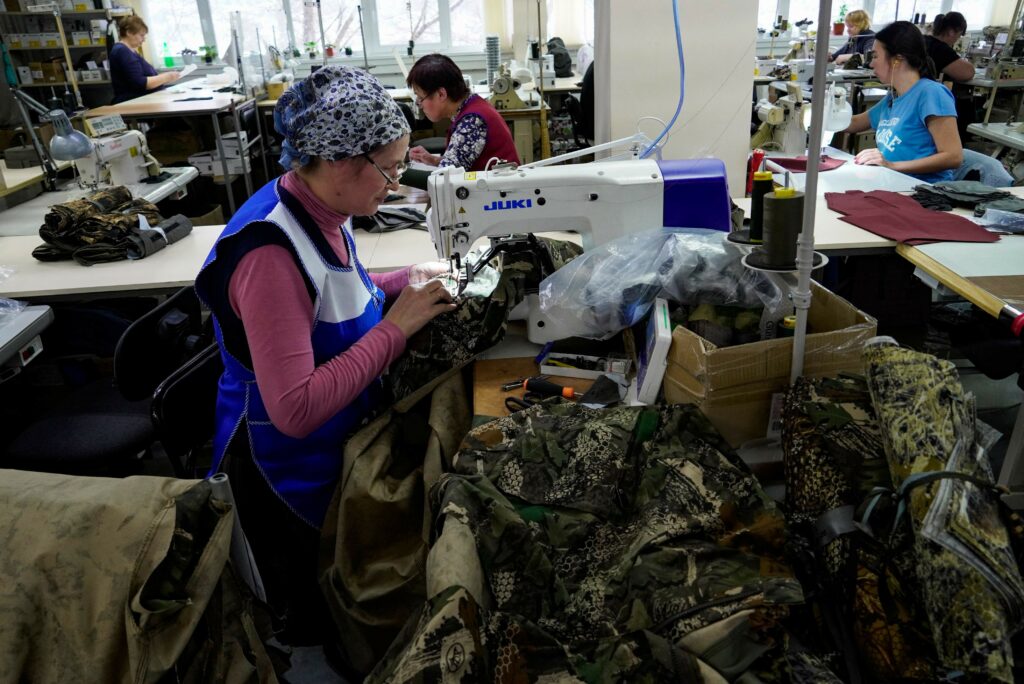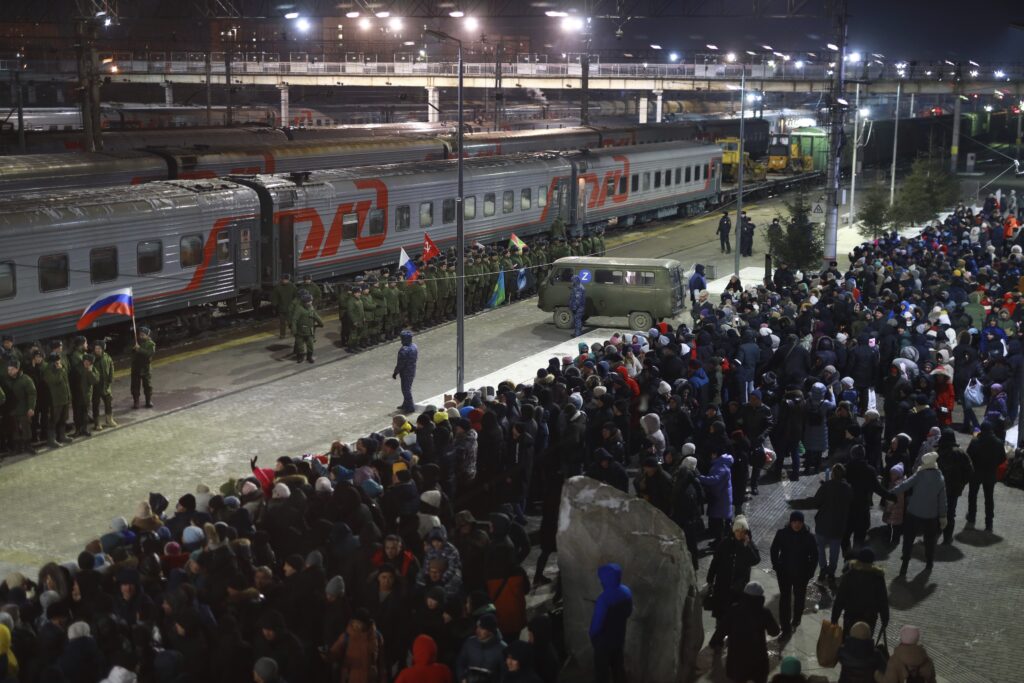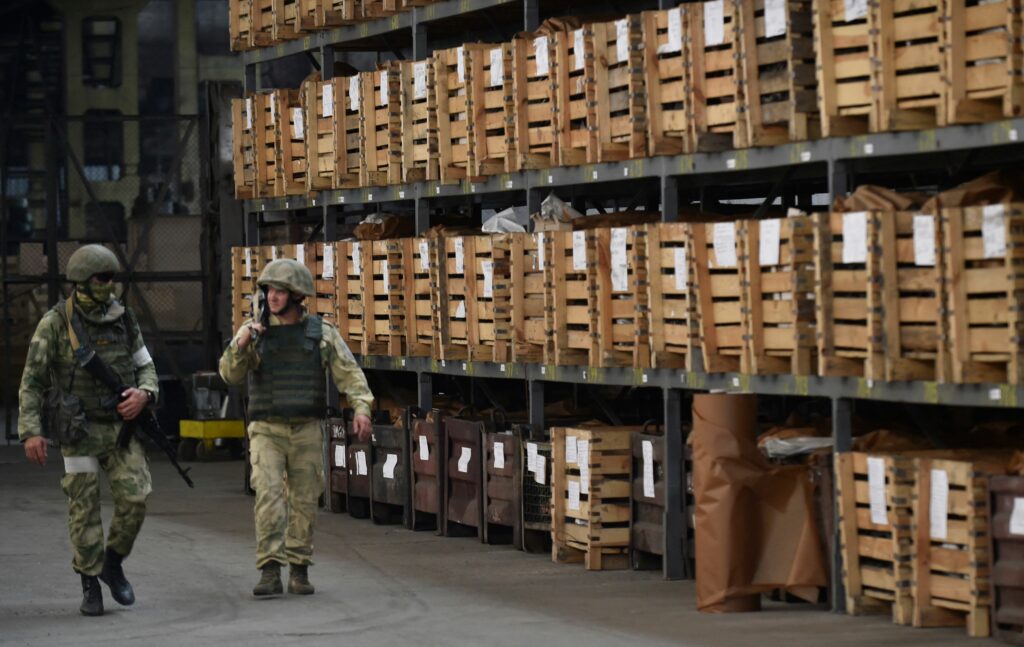Chechnya is dominated by the personality cult around Akhmat Kadyrov, the first president of the Russian federal subject following its reintegration during the Second Chechen War. His 2004 assasination saw the republic fall to Ramzan, his son. Quickly building up a mythologized image of his father, Ramzan placed Akhmat’s likeness on state flags, while coining the regime’s barely unofficial slogan «Akhmat Sila!» (Akhmat is strength!) to accompany its idea of following «Akhmat’s path» (a supposed ideological guideline), and the renaming of many organizations after his father.
One of the best known of these «Akhmat» organizations is the Akhmat Kadyrov Fund (referred to as AKF, or the Fund). Officially, this is a charity fund, but in practice, it serves as the Kadyrov family’s corrupt slush fund. It is comprised of embezzled federal subsidies and forced tithes from the republic’s citizens. The Fund is sanctioned by the United States due to Kadyrov’s prolific human rights violations.
In the Russian re-invasion of Ukraine, Ramzan has mobilized the Fund for three purposes: «charity,» propaganda, and war. The extent to which the AKF has been tapped indicates just how deep it is, which has allowed the Kadyrov family to go mostly unaffected by a global sanctions regime against them. It also serves as a microcosm of Kadyrov’s role in the invasion and reveals where «Akhmat’s path» truly leads.
«Charity»
It must immediately be noted that the use of money from the AKF for «charitable» purposes, both domestically and in Ukraine, during the invasion is purely propagandistic, serving as one front in Kadyrov’s large-scale information war. It is also not real charity, as Kadyrov is providing aid to those suffering under an occupation he is helping to create.
Most of Kadyrov’s «charitable» actions in Ukraine have been focused in Melitopol. On 6 March Ramzan announced that the AKF would be providing over twenty tons of food, including sugar, potatoes, and flour. The Fund is also claiming be giving medicine, such as insulin, to the city. Roughly a week later, the AKF again stepped in to help the civilians of Melitopol, this time providing almost eighty tons of flour, rice, buckwheat, sugar, oil, onions, and potatoes. While the abduction of Melitopol’s mayor continues, Kadyrov is sending the «first twenty tons» medical aid. As Ramzan claimed to speak for the residents of the city in thanking his mother, who runs the AKF, his henchmen managed to find a true local to thank Kadyrov. The choice of Melitopol is simply because it was logistically the easiest to reach that early in the invasion.
Domestically, the AKF is assisting the families of troops partaking in the invasion. Kavkazskii Uzel‘s source says families are given fifty thousand rubles ($ 440). Kadyrov reported that they will receive between 20 and 100 thousand rubles ($ 175 to $ 878), in a «continuation» of the policy of providing fifty thousand rubles. He also claimed to be providing direct food assistance as well.
With food prices, as well as the cost of other products, rising sharply and quickly, the domestic aid is necessary. However, the mismatch in spending between Melitopol and Chechnya is likely to aggravate the republic’s residents. And they would know about this funding imbalance, as the AKF’s actions in Melitopol, unlike rising prices, have been shared on state media channels.
Propaganda
Chechnya’s Minister for National Policies, External Communication, Press and Information Akhmed Dudaev announced on 5 March a competition hosted by the AKF for pro-regime info-warriors. Five hundred thousand rubles ($ 4130) would be awarded to whomever could make the best propaganda to counter the «fakes» of «provocateurs.»
What needs to be accomplished in order to win the contest, especially considering most of the Kadyrovite network reposts the same decadent propaganda anyway, is unclear. It would be safe to assume, however, that the «provocateurs» the regime has in mind are not necessarily Western, but rather the technologically savvy, oppositional Chechen diaspora. This network of activists and bloggers have become increasingly troublesome for Kadyrov over the past couple of years.
War
Ramzan is also utilizing the AKF directly for purposes of the invasion. With the Fund, he supplied armored vehicles to the separatist authorities in Luhansk and Donetsk, as well as gave them directly to the «Sparta» battalion. These gifts serve the purpose of boosting his image and strengthening his relations with the breakaway regions, all while theoretically furthering the war effort.
More significantly, Kadyrov has offered several sizable bounties, to be paid out of the AKF. The bounties were the first announced usage of Ramzan’s personal slush fund. The first round of bounties on 25 February included $ 5000 for killing a «national battalion» fighter (members of the Azov, Aidar, Sheikh Mansur and Dzhokhar Dudayev battalions, as well as regular soldiers), $ 20,000 for destroying an infantry fighting machine, and $ 30,000 for eliminating a tank. The next round, issued 3 March, upped the stakes. These offered $ 500,000 per head for the commanders of the Azov and Dzhokhar Dudaev battalions and the regular soldiers. Kadyrov has running feud with Azov, and Adam Osmaev, the Dzhokhar Dudaev Battalion’s commander, has survived multiple assassination attempts against him over the past almost decade. Whether Ramzan intends to actually follow through on the bounties is unknown. The ploy comes across as blustery posturing, yet he is notorious for rewarding and purchasing loyalty through money and lavish gifts.
Finally, the AKF has also financed shipments of food to the front throughout the invasion. The need to do this shows the poor state of the force’s logistics and the ill-preparedness of the troops. This is despite the fact that high-ranking kadyrovtsy in all likelihood knew of the invasion plans, as Ramzan has been one of its biggest proponents and some of the present kadyrovtsy units had never previously deployed beyond Chechnya. Ingushetia’s authorities also shipped food to the front a few days after Chechnya’s, indicating that orders might have come from Moscow for the regions to help out more with the invasion.
End of the path
Public feelings toward how Ramzan is using these funds for the war effort are hard to know. Anti-regime opinions are not expressed through polling; naturally there is a well-grounded fear of retribution. Social media posts are flooded by reactions and responses from pro-Kadyrov and pro-Kremlin accounts.
The main Chechen opposition group, «1ADAT,» has vehemently condemned Ramzan’s actions. The movement highlighted actual domestic problems, which contrast drastically with supplying military equipment to the so-called Donetsk and Luhansk People’s Republics. 1ADAT considers these «charitable» actions fake, accusing the regime of financing them by withholding percentages of pensions and state employees’ salaries.
The logic of the opposition cannot be faulted, even if its alignment with public sentiments is not known. Rising costs and other socioeconomic concerns are the sole grievances that have proved sufficient to rouse public resistance in Chechnya for some time. On 10 December of last year, dozens of women embarked on a protest at the Berkat market in the center of Grozny. Their motivation was the high cost to rent a stall in the market.
With the cost-of-living in Chechnya already rising as the effects of sanctions begin to set in, the domestic socioeconomic situation will continue to become untenable. Additionally, the strengthened sanctions regime could threaten Kadyrov’s lifeline: federal funding. While his subsidies survived previous expansions, the new wave of sanctions is unprecedented. Experts warn that the Chechen leader will become more pressed if he continues to extravagantly make use of the Akhmat Kadyrov Fund but receives fewer subsidies from Moscow. His ability to maintain domestic socioeconomic satisfaction will accordingly decrease. Akhmat’s path, while appealing in the moment, leads only to trouble.










